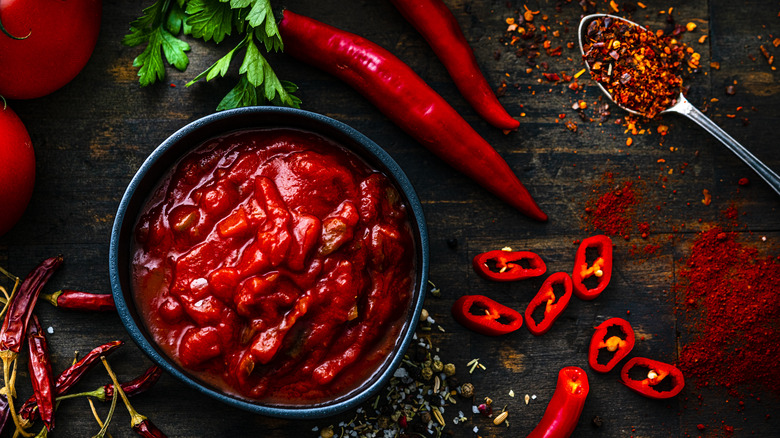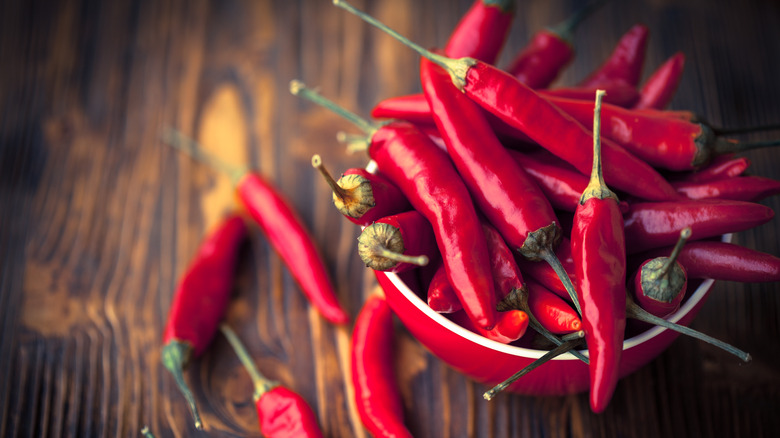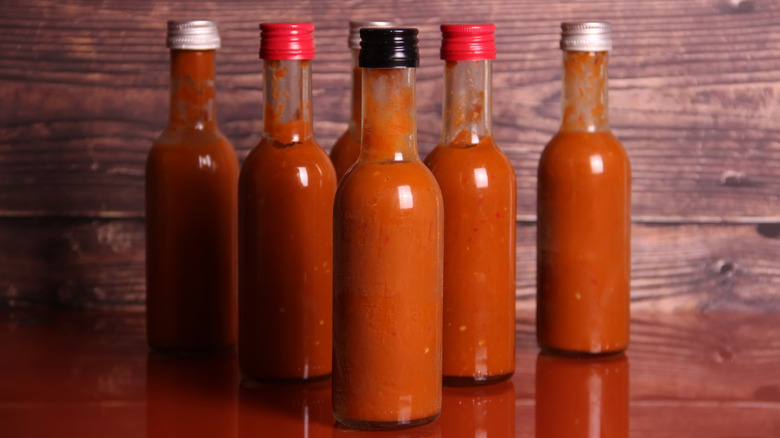Is It Better To Use Fresh Or Dried Peppers For Homemade Hot Sauce?
Making hot sauce at home may not be part of your normal routine, but many people love crafting a signature fiery concoction. When it comes to making hot sauce, the allure lies in the ability to control the flavors and spice level. Whether you aspire to replicate the essence of your favorite commercial brands or to invent an entirely new spicy sensation for the world to embrace, the process is deeply personal. Regardless of your approach, one crucial aspect demands attention: Securing the finest ingredients. The choice of peppers, in particular, holds the potential to significantly impact the character of your hot sauce.
In the world of crafting homemade hot sauce, one big question remains: Is it better to use fresh or dried peppers? The answer hinges on your desired outcome. Fresh and dried peppers each boast a unique set of advantages and drawbacks. Furthermore, if you are opting for a fermented style of hot sauce, the fermentation process for peppers varies depending on whether they are fresh or dried.
Fresh peppers vs dried peppers
If you are choosing to use fresh peppers, the first thing you'll want to do is buy the best quality you're able to find. While there is nothing better than growing them yourself, getting organic peppers from a farm or farmer's market while in season works, too. Be sure they are free of pesticides, wax, or oil coatings. You'll have better-tasting peppers and increase the chances of your fermentation process going smoothly.
If you go with dried chile peppers and you're making a fermented style of sauce, you'll need to add something in with the ferment that has a fresh surface microbe for it to work correctly. (A simple salt brine can do the trick.) The added complexity and earthiness of dried chiles can make for more interesting flavor profiles in the finished product.
How spicy you want your hot sauce depends on which type of chile pepper you use and where it rates on the Scoville scale. The more capsaicin compound found in a pepper, the hotter it is, and since capsaicin levels increase as peppers ripen, sometimes dried chiles can be on the hotter side. That's because they are typically fully ripened before they are dried. That said, you can make your hot sauce very spicy using either option. If you're not sure where to start, here are 15 different peppers and how to use them.
More tips for making the best homemade hot sauce
Whether you choose fresh or dried peppers, there are other factors to keep in mind that will help you develop a delicious hot sauce. Always make sure you taste the peppers and consider the flavor, quality, and spice level, before starting your homemade hot sauce. If your recipe still ends up being too spicy, there are ways to fix an overly spicy hot sauce. Additionally, prepping the peppers correctly will ensure a better quality hot sauce. Be sure to clean them thoroughly and remove any parts that are particularly rough, sharp, or thick. Lastly, consider the right complementary ingredients for your sauce, like what kind of sweetness you need for balance.
The answer to the question of dried versus fresh peppers depends on the personal preference of the sauce-maker. If you are drawn towards deeper, earthier flavors and a bit more heat, going with dried chile peppers may be the right option for you. If you like a milder, fresher style of hot sauce, perhaps look at using fresh peppers. But with so many other factors that impact the flavor and texture of your hot sauce, you should be able to craft a sauce you love no matter what kind of peppers you choose.


